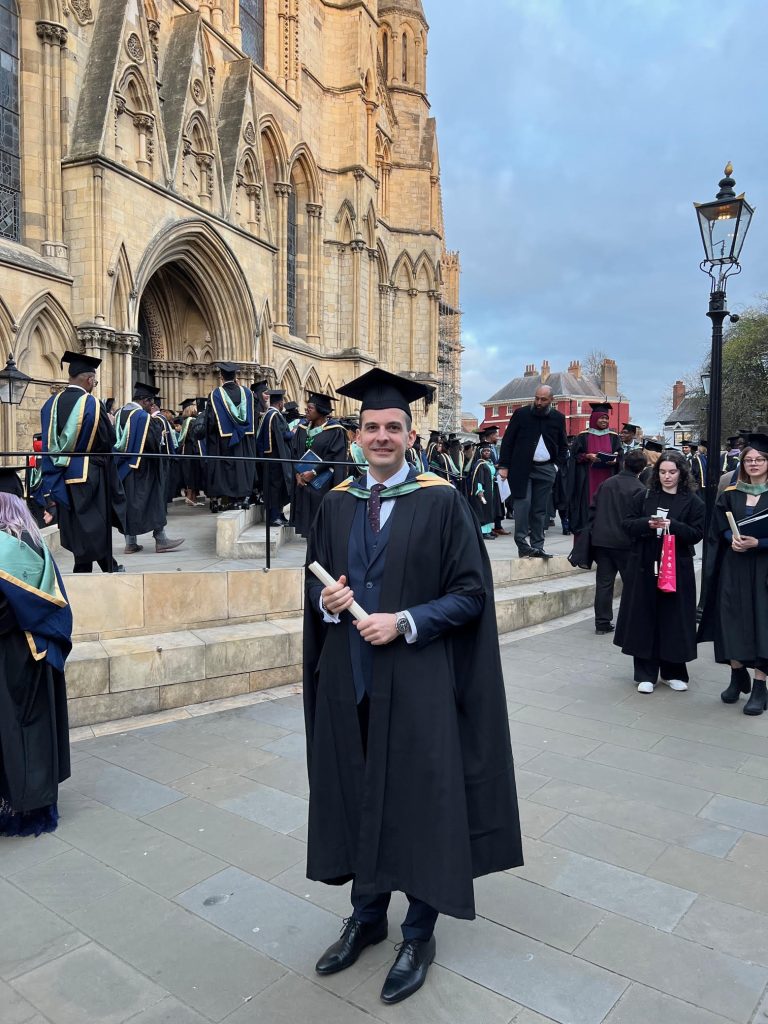The University of Lancashire was established in 1992 with roots dating back to 1828. This civic-minded public institution in Preston, Lancashire, UK, serves tens of thousands of students from over 100 countries and maintains partnerships with more than 120 institutions worldwide, offering a wide range of undergraduate and postgraduate programmes.
University of Lancashire is well-known for its community engagement, modern research profile, and flexible learning pathways.


The Partnership with Robert Kennedy College (RKC)
University of Lancashire has formed an exclusive partnership with Robert Kennedy College (RKC), a Swiss-based online education specialist — to deliver 100 % online postgraduate master’s programmes, awarded by University of Lancashire.
Key features of this partnership:
- The degrees are awarded directly by University of Lancashire (the UK awarding institution) but delivered in collaboration with RKC’s online platform and structures.
- RKC brings its “Swiss quality” brand of online education (with over two decades’ experience since 1998) while University of Lancashire brings its British university credentials.
- These online programmes allow students globally to earn a UK degree from University of Lancashire without necessarily being on the UK campus. According to University of Lancashire ’s partner page: “You’ll get the same degree, but have the flexibility to learn anytime, anywhere.”
This kind of partnership is particularly suited for working professionals, international students, or those who require flexibility in study.

Programmes Offered Under This Partnership
Here are some highlighted master’s programmes delivered under this partnership:
- MSc Business Analytics & Artificial Intelligence
Delivered online in collaboration between RKC and University of Lancashire. It blends data analytics, AI, business intelligence and strategic decision-making. - MSc Entrepreneurship & Innovation
Focuses on venture creation, innovation frameworks, entrepreneurial leadership. Fully online via the partnership. - MSc Cyber Security with Artificial Intelligence
Another offering under the partnership, aligned to trending fields of cybersecurity + AI.
Advantages of the Programmes & Partnership
Flexibility and Global Access
Because these programmes are delivered fully online by RKC in partnership with University of Lancashire, students can study anywhere, any time. This makes them ideal for those balancing work, life, and studies. The ability to choose pace to finish the programme in 12 months to 24 months offers further flexibility to the students.
Credible UK Awarding Institution
Students earn a UK-awarded degree from University of Lancashire, which is fully recognised by the UK government list of awarding institutions. This means you get the prestige of a British degree, combined with the convenience of online delivery.
Cutting-Edge Specialisations
The selected programmes respond to current and emerging global trends: AI, analytics, cyber-security, entrepreneurship, innovation. They are designed not just academically but with practical relevance in view (e.g., impact projects instead of traditional dissertations).

Industry and Global Relevance
Through the partnership, the curriculum aims to include real-world case studies, applied assignments, and global perspectives. For example, the MSc in Business Analytics & AI emphasises strategic decision-making, analytics tools, AI integration in business contexts.
Entrepreneurship & Innovation programme emphasises launching ventures, applying theoretical frameworks to real-world innovation.
Value for Money & Speed
The master’s programmes can be completed in 12 months, which is attractive for busy professionals. The partnership with an online specialist, Robert Kennedy College means that Masters can be offered at competitive cost relative to full-time campus study where fee can be paid in easy monthly installment plan.
Learner Support & Global Community
With RKC’s online platform (OnlineCampus) and global student cohort (students from 160+ nations) gain exposure to international peers, and flexible support mechanisms typical of online learning.
In a world that values innovation, adaptability, and international experience, the University of Lancashire and Robert Kennedy College (RKC) partnership offers a truly modern path to a prestigious UK master’s degree. Whether you’re driven to launch your own venture, harness the power of data and AI, or lead in cyber security, these programmes are designed to equip you with the expertise and confidence to thrive in the global marketplace.

With 100% online flexibility, multiple start dates each year, and a UK-awarded qualification recognised worldwide, there has never been a better time to invest in your future — on your own terms.
👉 Take the next step today — explore the University of Lancashire –RKC master’s programmes, check the upcoming intake dates, and begin your application to join a truly international learning community.
Your degree. Your future. Your world — all connected through University of Lancashire and Robert Kennedy College.










































